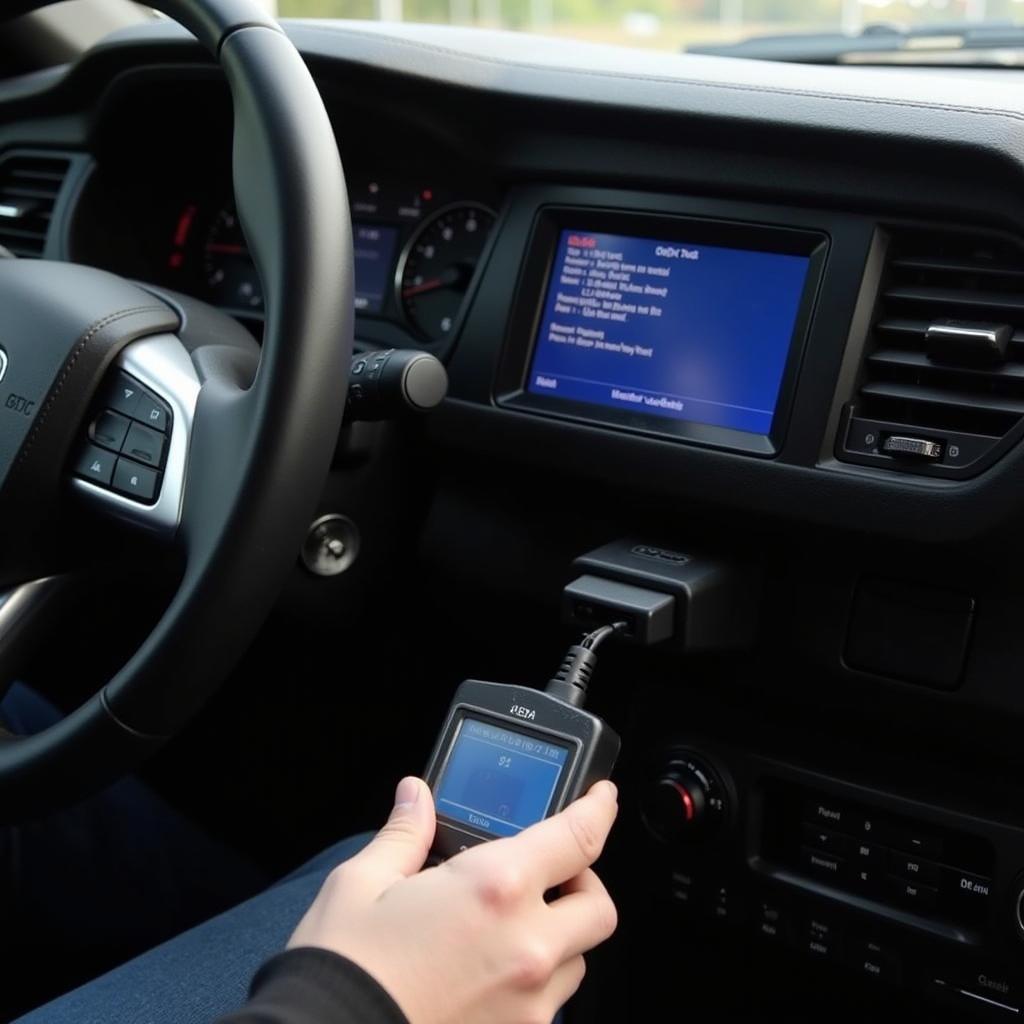Reaching the 25,000-mile mark in your car’s life is a significant milestone, and it’s crucial to ensure your vehicle is well-maintained to keep it running smoothly and prevent future problems. This is a time when your car’s manufacturer recommends a comprehensive checkup to address potential issues before they become major problems.
Why Is Car Maintenance at 25,000 Miles Important?
Regular maintenance is essential for ensuring the longevity and performance of your car. At 25,000 miles, your vehicle has likely experienced a fair amount of wear and tear, and certain components may need inspection or replacement. By performing necessary maintenance at this interval, you can:
- Prevent Major Problems: Catching minor issues early can save you from costly repairs in the future.
- Improve Fuel Efficiency: A properly maintained engine runs more efficiently, leading to better fuel economy.
- Enhance Safety: Ensuring your car’s brakes, tires, and other safety features are in good working order will keep you and your passengers safe on the road.
- Increase Resale Value: A well-maintained car will be more attractive to potential buyers when you decide to sell it.
Key Maintenance Tasks at 25,000 Miles
Here’s a breakdown of the essential maintenance tasks you should prioritize at the 25,000-mile mark:
Fluid Checks and Replacements
- Engine Oil and Filter Change: The engine oil lubricates and cools moving parts, preventing friction and wear. It’s essential to change the oil and filter regularly to keep your engine running smoothly.
- Coolant Check and Flush: Coolant keeps your engine from overheating, and it needs to be replaced periodically. Inspect the coolant level and consider a flush if it’s discolored or appears old.
- Brake Fluid Check and Flush: Brake fluid transfers pressure from the brake pedal to the calipers, ensuring effective braking. Check the fluid level and consider a flush every two to three years.
- Transmission Fluid Check and Change: Transmission fluid lubricates and cools the gearbox, ensuring smooth gear changes. Check the fluid level and consider a change based on your vehicle’s manual recommendations.
Tire Inspection and Maintenance
- Tire Rotation: Rotating your tires ensures even wear and tear across all four tires. It’s recommended to rotate tires every 5,000-7,500 miles.
- Tire Pressure Check: Maintaining proper tire pressure is crucial for safe driving and optimal fuel economy. Check tire pressure regularly, especially in extreme weather conditions.
- Tire Tread Depth Inspection: Worn tire treads can significantly impact braking and handling. Inspect the tread depth and consider replacing tires if the tread is below the legal limit.
Other Essential Checks
- Air Filter Replacement: A clogged air filter restricts airflow to the engine, reducing performance and fuel efficiency. Replace the air filter every 12,000-15,000 miles or as needed.
- Spark Plugs Inspection and Replacement: Spark plugs ignite the air-fuel mixture in the combustion chamber. Inspect and replace them as recommended by your vehicle’s manual.
- Battery Inspection and Cleaning: The battery provides power to the car’s electrical system. Ensure the battery terminals are clean and the battery’s overall health is good.
- Wiper Blades Inspection and Replacement: Worn wiper blades can affect visibility and safety. Replace wiper blades when they show signs of cracking, streaking, or smearing.
Additional Tips for 25,000-Mile Maintenance
- Inspect Belts and Hoses: Check the condition of serpentine belts and hoses for cracks, leaks, or fraying.
- Check for Leaks: Inspect your vehicle for any leaks, including oil, coolant, brake fluid, or power steering fluid.
- Examine Lights and Indicators: Make sure all exterior and interior lights are working, including brake lights, headlights, and turn signals.
- Check the Suspension System: Inspect the suspension for worn or damaged components, such as shock absorbers, struts, or control arms.
Expert Opinion:
“It’s always best to err on the side of caution when it comes to car maintenance,” says John Smith, a certified automotive technician with over 20 years of experience. “Regular maintenance is not just about preventing breakdowns, it’s about maximizing your car’s performance and ensuring your safety on the road.”
What to Do If You Notice a Problem
If you notice any unusual noises, leaks, or performance issues during your 25,000-mile check, it’s essential to address them immediately. Don’t ignore warning signs, as a minor problem can quickly escalate into a more serious issue.
Conclusion
Car maintenance at 25,000 miles is an important step in ensuring the longevity and reliability of your vehicle. By performing these essential checks and addressing any issues promptly, you’ll be taking proactive steps to keep your car running smoothly for many miles to come.
Contact us for any car maintenance needs!
Phone: +1 (641) 206-8880
Office: 500 N St Mary’s St, San Antonio, TX 78205, United States
FAQ
Q: How often should I change my car’s oil?
A: The frequency of oil changes varies depending on the type of oil used and your driving habits. However, it’s generally recommended to change the oil every 3,000-5,000 miles.
Q: What are the signs of a bad tire?
A: Signs of a bad tire include uneven wear, cracks, bulges, or low tread depth.
Q: What are the signs of a bad battery?
A: A bad battery may show symptoms like slow starting, dimming headlights, or an inability to start the car.
Q: When should I replace my spark plugs?
A: The recommended replacement interval for spark plugs varies by vehicle. Consult your owner’s manual for specific guidelines.
Q: How can I find a reputable mechanic?
A: Ask for recommendations from friends or family, research online reviews, and look for certifications from reputable organizations like the National Institute for Automotive Service Excellence (ASE).





Leave a Reply